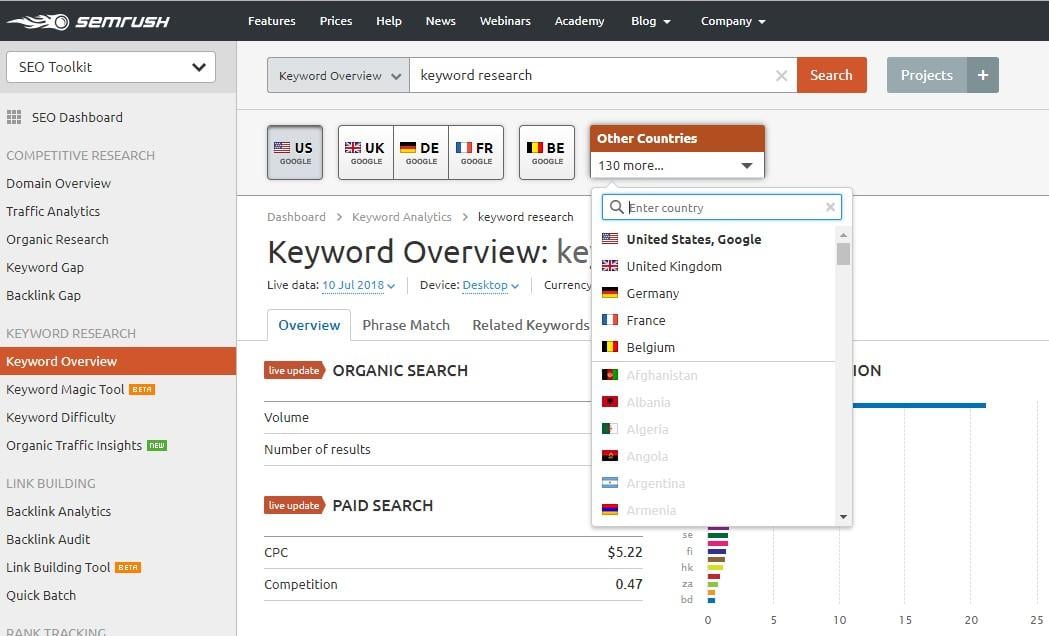Navigating the Digital Landscape: Leveraging International Search Engine Optimization for Cross-Border Success
In today's interconnected electronic globe, companies are increasingly looking past boundaries to touch into international markets. The intricacy of navigating the digital landscape on an international range demands a nuanced method, from comprehending the basics of International SEO to implementing geotargeting and multilingual keyword approaches.
Recognizing International Search Engine Optimization Principles
Navigating the details of global SEO needs a strong understanding of fundamental concepts to properly expand on-line exposure throughout borders. One important aspect of global SEO is understanding the relevance of localization. This involves customizing website material to fit the linguistic, social, and business differences of target audience. Key phrases need to be not just converted but likewise adapted to reflect exactly how customers in different regions look for details.
Additionally, having a clear understanding of geo-targeting is necessary. This entails showing to internet search engine the particular nations or regions a web site is targeting. Applying hreflang tags is one means to interact this info, making sure that the correct version of a website shows up in the search results page for a user in a certain area.
Moreover, understanding the influence of regional internet search engine and social networks platforms is crucial for global SEO success. For circumstances, while Google is dominant in numerous regions, nations like China have their own online search engine like Baidu, requiring tailored methods for each system to take full advantage of on the internet exposure.

Targeting Multilingual Keyword Techniques
Creating multilingual keyword phrase methods is necessary for properly reaching varied international target markets and optimizing on the internet visibility throughout various etymological areas. When targeting multilingual keyword strategies, it is essential to carry out thorough research study to comprehend the specific search terms and expressions used by the target audience in each linguistic region. This entails not only equating key phrases but also taking into consideration cultural nuances, local dialects, and search patterns special to each target market.
To create an effective multilingual search phrase technique, it is vital to prioritize importance and search intent. Keyword phrases must line up with the material on the website and reverberate with the cultural context of the target audience. Making use of tools such as Google Keyword Phrase Planner, SEMrush, or Ahrefs can help recognize high-performing search phrases in different languages and assess their search volume and competitors level.
Additionally, surveillance and assessing the performance of multilingual keyword phrases frequently is essential for enhancing and fine-tuning the strategy in time. By continuously adapting to changes in search behavior and trends, businesses can improve their on the internet exposure and attract more worldwide web traffic to their Recommended Reading internet sites.
Executing Geotargeting and Hreflang Tags
When aiming to boost global search engine optimization methods, incorporating geotargeting and hreflang tags is vital for maximizing web site presence throughout different areas. Geotargeting includes tailoring content to particular locations, making sure that individuals in different locations receive relevant info. By implementing geotargeting, services can boost their local search positions and attract region-specific web traffic.

Optimizing Web Site Framework for International Exposure
To even more improve international SEO techniques beyond geotargeting and hreflang tags, maximizing the site framework is vital for attaining worldwide exposure and maximizing reach across different regions. A well-structured internet site not only enhances customer experience however additionally assists in internet search engine crawlers in comprehending the content and context of the site. When intending for worldwide exposure, it is important to ensure that the site is organized in a logical fashion that caters to customers from different nations. Executing a clear pecking order with distinctive groups and subcategories can help in enhancing the website's navigation and user-friendliness.
Furthermore, producing language-specific subdirectories or subdomains can aid search engines deliver the appropriate variation of the site reference to users based on their language choices, even more enhancing the overall user experience. Furthermore, enhancing URL frameworks to consist of relevant keyword phrases and geotargeted terms can improve the website's presence in various areas. By structuring the internet site properly for global audiences, services can raise their opportunities of drawing about his in worldwide web traffic and expanding their reach across borders.

Monitoring and Examining Cross-Border Performance
Reliable monitoring and studying of cross-border efficiency is essential for evaluating the success of global SEO methods and recognizing chances for renovation in international reach and exposure. By carefully tracking crucial efficiency indications (KPIs) throughout various markets, companies can get important insights right into the efficiency of their cross-border SEO efforts. Checking metrics such as natural website traffic, keyword positions, conversion prices, and bounce rates can supply a detailed sight of exactly how well a web site is doing in different areas.
Examining cross-border performance information allows businesses to identify trends, patterns, and areas for optimization. By comparing performance across various countries, regions, or languages, firms can determine successful strategies and center content to much better deal with details target audiences. Furthermore, keeping track of cross-border efficiency makes it possible for organizations to remain dexterous and receptive in the ever-evolving digital landscape. Regular evaluation of search engine optimization performance on a global scale makes sure that firms can adjust their approaches quickly to profit from emerging possibilities and preserve an one-upmanship in worldwide markets.
Verdict
To conclude, international SEO plays an important function in accomplishing cross-border success by optimizing websites for international presence, targeting multilingual key words methods, applying geotargeting and hreflang tags, and monitoring cross-border performance. By understanding the basics of international SEO and optimizing web site frameworks appropriately, services can effectively get to and involve with their target audiences across various regions and languages. This critical strategy is essential for expanding market reach and driving on-line development in today's digital landscape.
Comments on “Beyond Boundaries: The Following Frontier of SEO-- International Optimization”